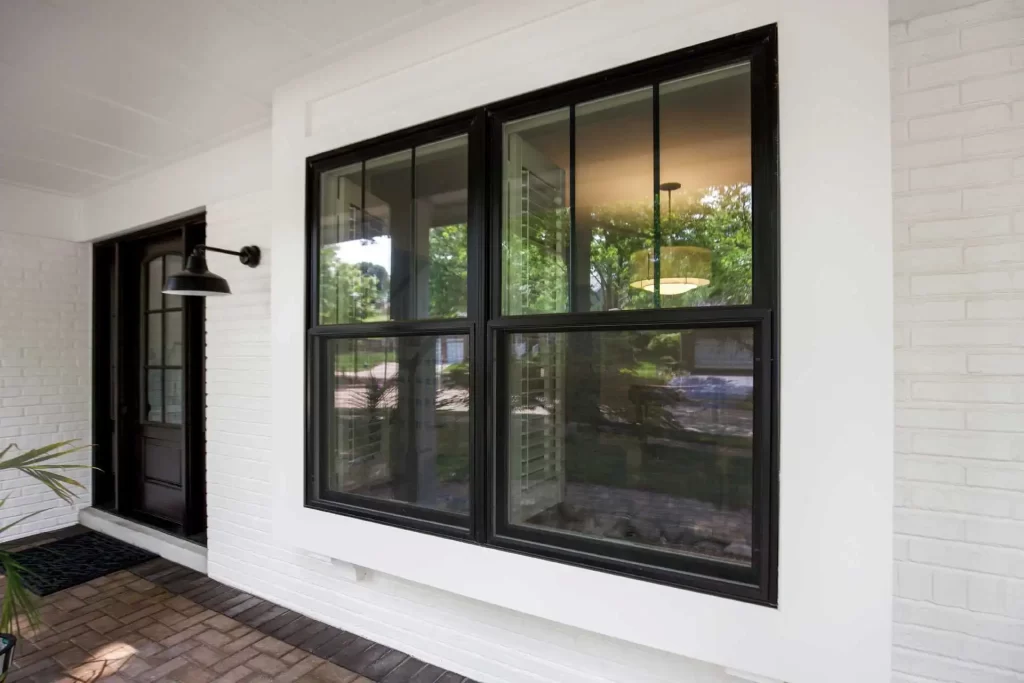Published on: December 15, 2023

If you are a homeowner with an older home, you are probably considering replacing your windows. This can be a big project to tackle, especially if you’ve never had to choose replacement windows.
You’ll might find yourself weighing the pros and cons of single-hung versus double-hung windows. Take some time to learn the difference between them so you can be certain you’re making the right decision for your home. Interestingly enough, you might end up using both to get the functionality you want throughout your home while sticking to your budget.
We’ve compiled everything you need to know about both single-hung and double-hung windows. You’ll learn about their main differences and how they compare in ventilation, style, budget, and maintenance. This way you’ll truly be able to choose which will be the best option for you and your home.
But first, you need to be able to recognize when your home is due for new windows to avoid costly repairs and inside discomfort from old, drafty windows.
Windows last for a long time, but they don’t last forever. Here are a few telltale signs that it is time to replace your windows.
These are all indicators that your current windows are not functioning at their full capacity and you should begin the process of replacing them. It’s time to choose new single-hung or double-hung windows.
A single-hung window is a window where the bottom panel moves up and down but the top panel remains stationary. The top and bottom panels are sometimes referred to as sashes so you’ll also hear these sometimes called single-sash windows instead.
The single-hung window’s counterpart is a double-hung window, also known as the double-sash window. These differ from the single-hung windows in that, instead of having one movable panel and one immovable one, both panels of the double-hung window can move up and down independent of each other.
Additionally, some double-hung windows include a tilt feature that allows you to unlatch the panels and tilt them inward. This feature allows the homeowner to clean the outside of the window from the inside of the house.
It is important to understand that the term single or double hung is not the same as single or double paned. They are very different things. The double or single pane indicates how many pieces of glass are in each window and has no bearing on whether the panels are movable or immovable.
Before purchasing replacement windows for your home, review the differences between the two window types to ensure you find what’s best for you.

Ventilation in your home is a key consideration when choosing the right windows. Single-hung and double-hung windows have different ventilation features.
Single-hung windows open from only from the bottom panel or sash. This means that they work well on a first floor to let the cooler, lower air from outside into the home.
However, since double hung windows open from the top and bottom panels, they are highly effective on the upper stories of homes to let the higher, hotter air out as the cooler air comes in through the lower panel on the lower floor.
Both single-hung and double-hung windows are style versatile. They are available in wood, fiberglass or vinyl.
When looking at the cost differences between single-hung and double-hung windows, single-hung windows are clearly more budget friendly for two reasons:
In comparison, double hung-windows are more expensive since both their panels move. If you choose windows that include the tilt feature, you’ll likely be paying even more per window, but keeping them clean will be far more enjouable. They are also slightly more expensive to install.
Single hung windows are a great energy efficient, budget friendly way to upgrade your home.
They are typically more efficient than double-hung windows since they have fewer moving parts, and less opportunity for the window to not close all the way. This can happen with the upper panels as the window gets older or simply from user error. When the window isn’t closed and locked tightly, heat from your house will escape out the top leaving your home significantly less energy efficient.
Having windows that are easy and painless to clean is a huge bonus for homeowners and can mean clearer views to the great outdoors as well as energy efficiency during the colder months by allowing the sun to heat the house.
The tilt feature on double-hung windows makes them very easy to clean from the inside. You simply squeeze the latches on the panel and the window tips toward you allowing you to clean the outside of the panel from the inside of your home. This makes double-hung windows a great option for your home’s second story since you won’t need to get your ladder out to clean the outside of the windows.
Single-hung windows don’t tilt in like their double hung counterparts do making cleaning a little less convenient. This means that they are a great option for homeowners who own ranches or ramblers since they can easily reach the outsides of their windows without a ladder
If you’re ready to get started installing new windows for your home, give 2FL Windows, Siding and Roofing a call at 253-499-7786 or contact us online. Our team will help you choose the perfect, most energy efficient kind of window based on your home, ventilation needs, style, and budget.
Further Reading:
Comments are closed.

Read the latest articles about windows.







[…] these windows cost more than single-hung because of the added engineering required and more complicated construction. More moving parts […]